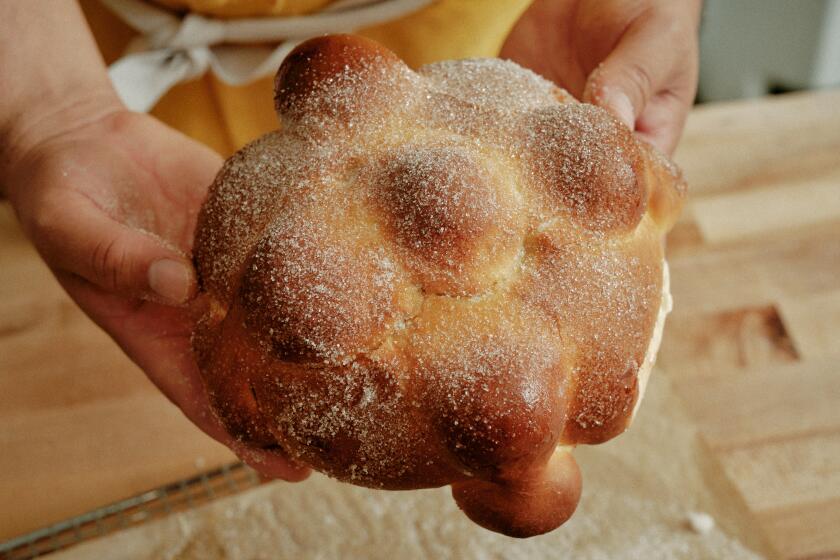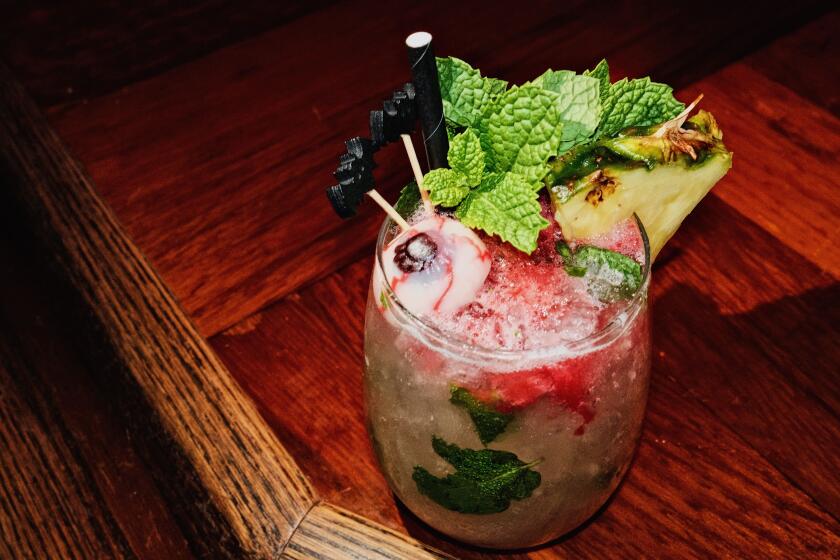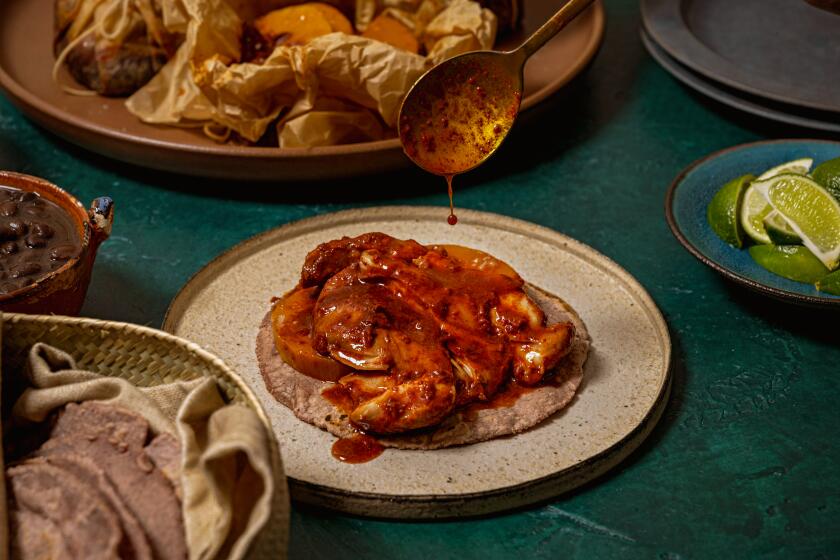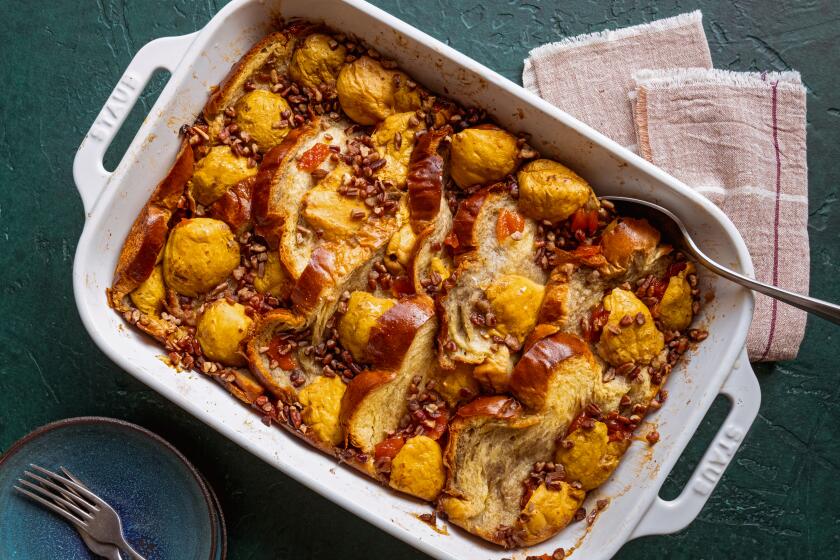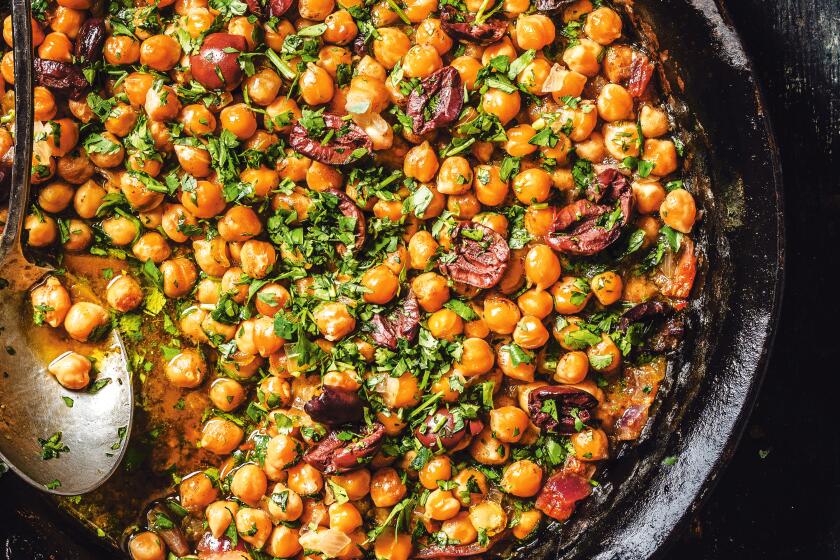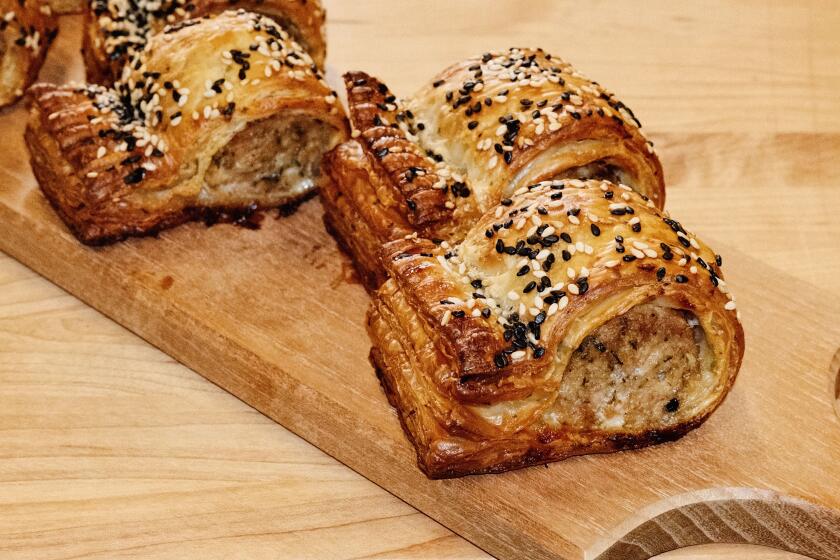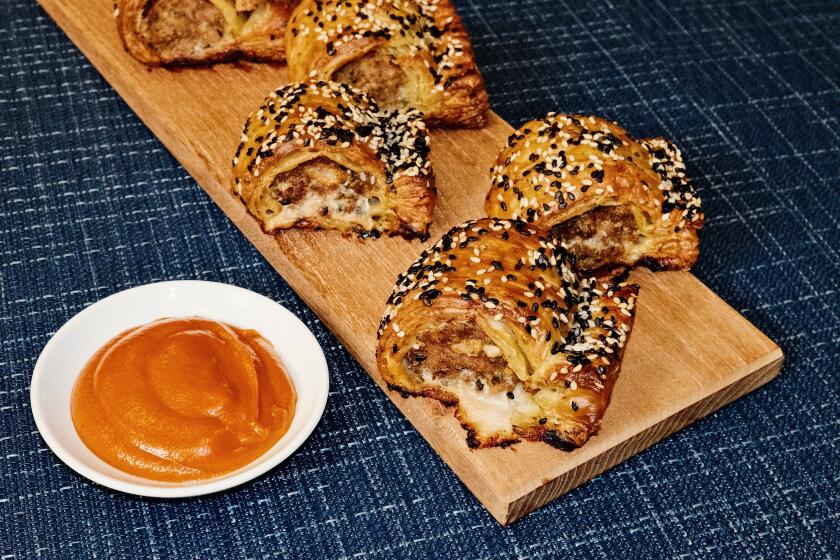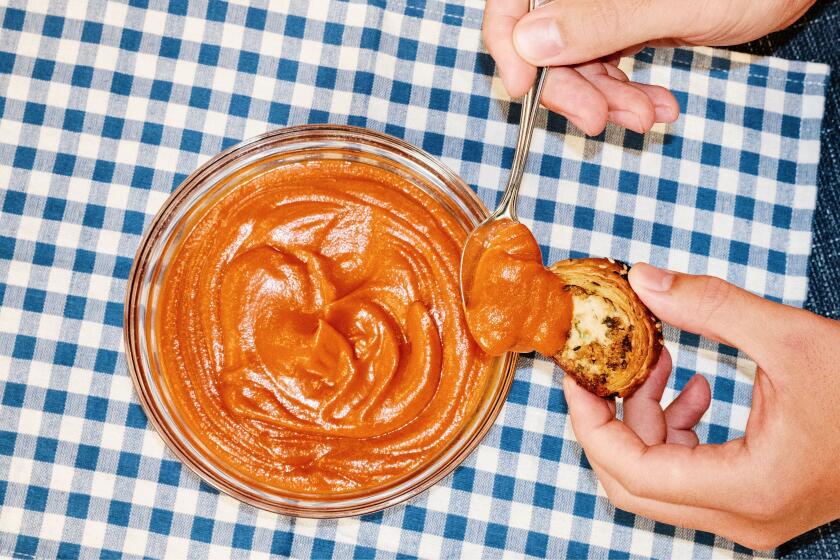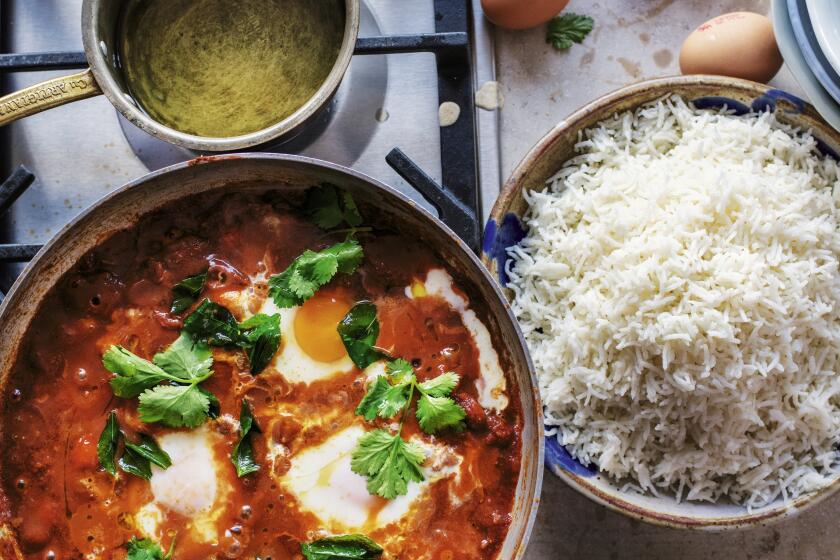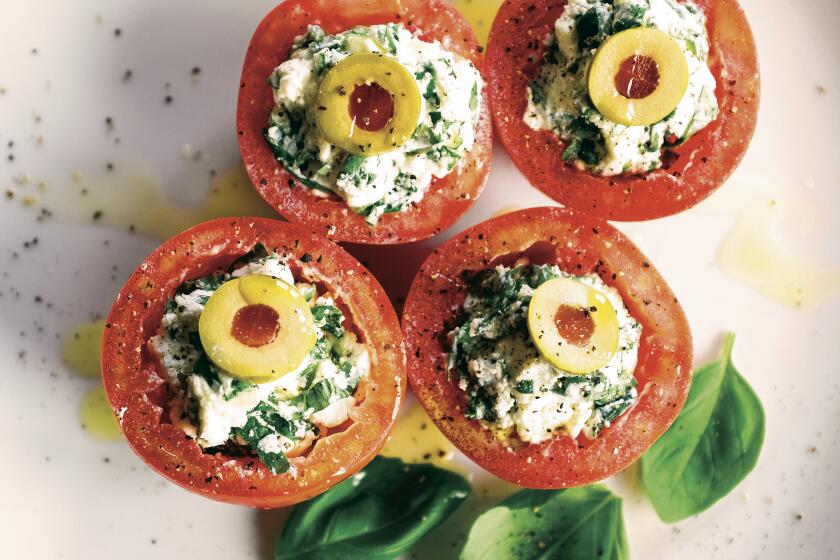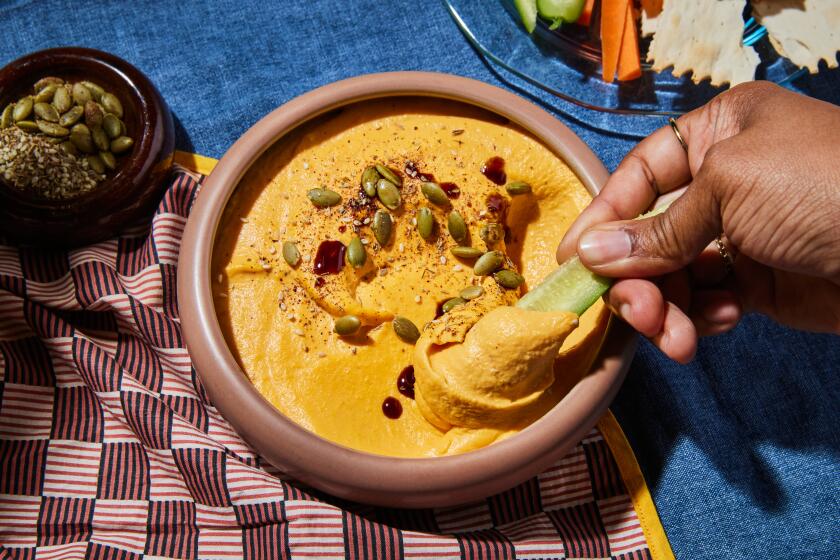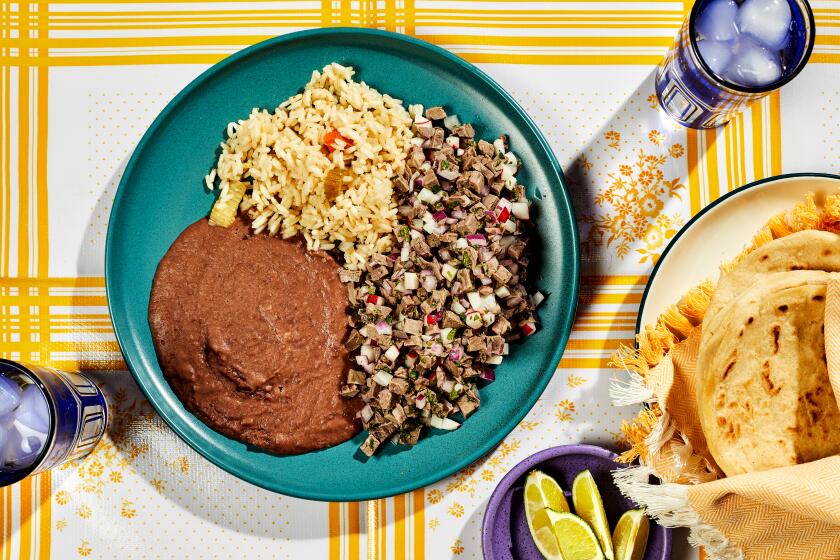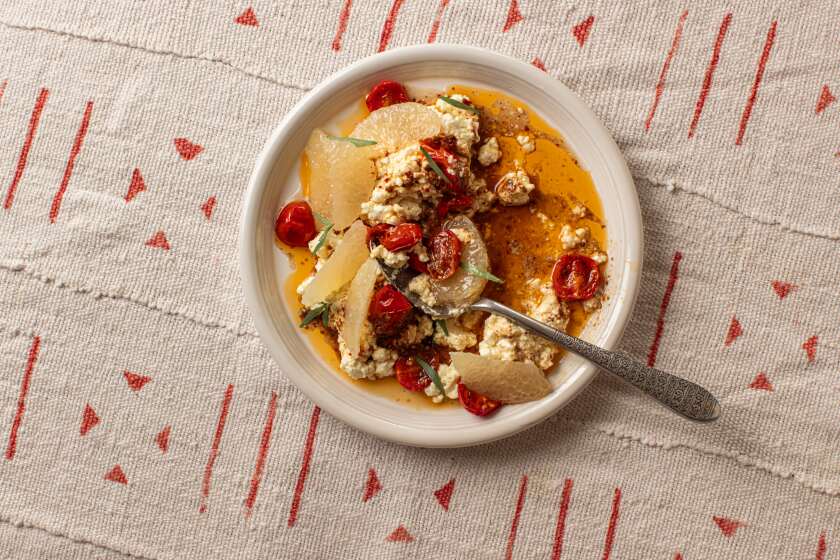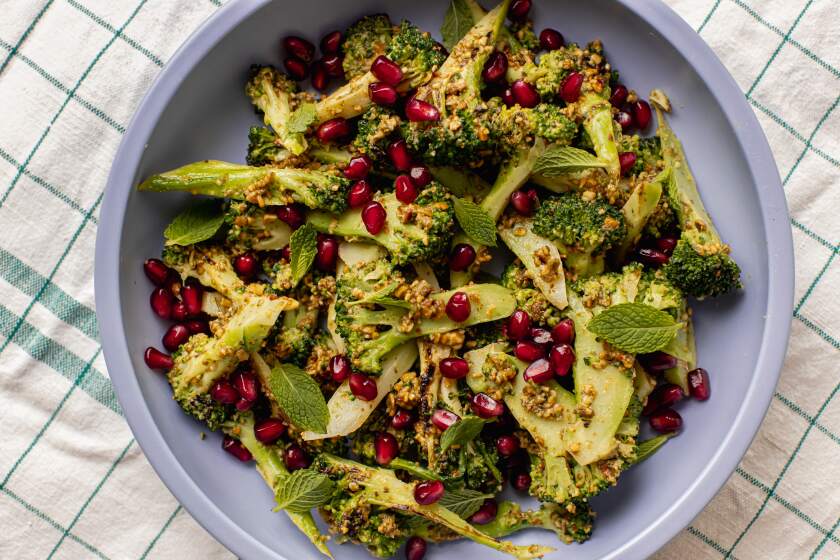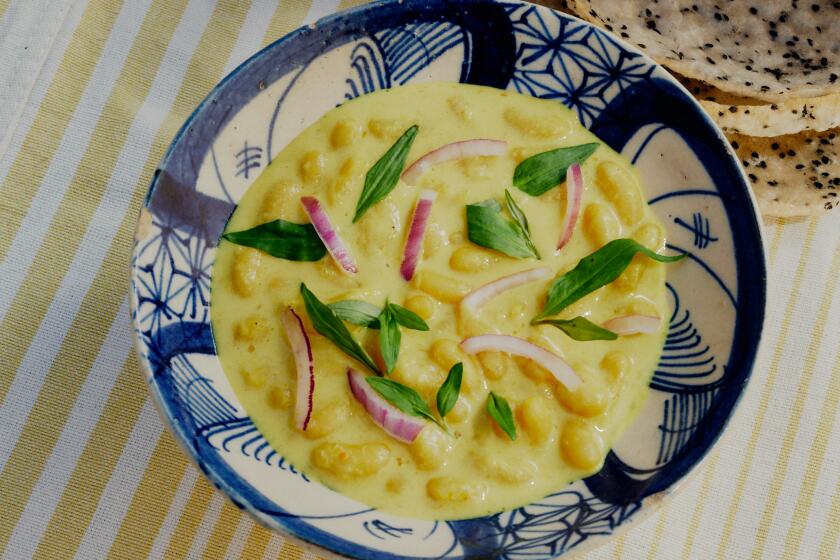Kale salad with farro, dried fruit and blue cheese
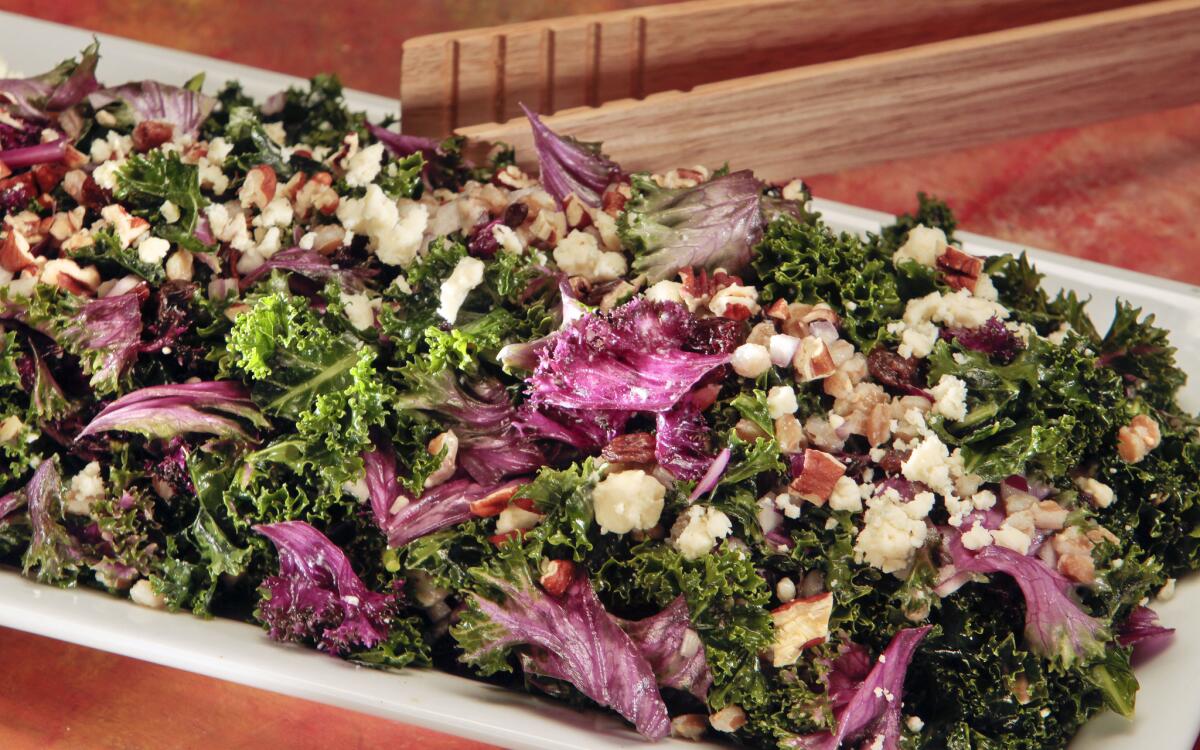
Kale is about as unlikely a food star as you can imagine. It’s tough and fibrous. Bite a piece of raw kale and you’ll practically end up with splinters between your teeth. Nevertheless, kale has become a green of the moment because, given a little special care, it actually can be made not only edible but delicious.
You can cook it, of course, the lower and slower the better. But surprisingly, one of the most popular ways to use kale these days is in salads. Though kale leaves have always been found on almost every salad bar, it wasn’t for reasons of edibility — it was for decoration, because this was one green so tough it would last forever without wilting.
But the solution is remarkably simple: Give it a massage. Yes, seriously. And I mean a real massage — a deep-tissue bone-breaker. Grab bunches of it in both hands and squeeze. Then rub them together. And repeat. It’s almost like kneading bread dough.
It won’t take very long — just a couple of minutes — but you’ll be amazed at the difference. That tough cellulose structure breaks down — wilts, actually — and those leaves that once seemed so coarse and fibrous turn silky.
You can feel it happening. You can see it too -- the leaves will darken and shrink to almost half their pre-massage volume.
The flavor changes as well. That pronounced bitterness mellows, revealing some of the same depths of sweet green flavor you normally get only through long, slow cooking. In fact, the best way to know when you’ve massaged kale long enough is to take a bite. The color and texture changes can happen before the leaves are completely softened. But taste doesn’t lie.
Even better, because the massaged greens have such a wonderful texture and just the right mix of sweet and bitter flavor, you don’t need much of a salad dressing. Use a little good olive oil and a pinch of salt when you’re giving it a rubdown and all you need afterward is a hint of acidity — vinegar or lemon juice — to make a perfectly balanced salad.
One mark of kale’s rock star status is the sheer number of varieties available. It wasn’t so long ago that you found just dark green curly kale. Then came the type variously called “Tuscan,” “ lacinato” or “dinosaur.” Now you can even find kales beautifully colored in shades of lavender and purple.
The good news is they all work equally well for salads. Provided, of course, you give them a good rubdown first.
Toast the farro in a dry medium saucepan over medium heat until it smells nutty and turns golden, about 5 minutes. Add 2 cups water and bring to a simmer. Season with one-half teaspoon salt and cook until the farro is tender but still a little chewy, about 45 minutes. Drain (there will probably still be some liquid left), rinse under cold running water and gently pat dry in a kitchen towel.
Place the dried fruit in a small bowl with the Grand Marnier. Add just enough warm water to cover and set aside until softened, about 15 minutes. Alternatively, you can microwave them for 30 seconds and let stand for 5 minutes.
Remove and discard the stems from the kale. Chop the leaves into bite-sized pieces. Place in a large mixing bowl with 1 teaspoon salt and the olive oil. Grab the leaves by the handfuls and massage them roughly. Don’t be timid. After a minute or two, the coarse, stiff leaves will turn soft and silky. You’ll have about half the volume of kale you started with.
Drain the dried fruit and add it to the kale, along with the cooked farro, blue cheese, red onion, pecans and vinegar. Toss to mix well, then season to taste with black pepper and more salt and vinegar, if necessary.
Get our Cooking newsletter.
Your roundup of inspiring recipes and kitchen tricks.
You may occasionally receive promotional content from the Los Angeles Times.


